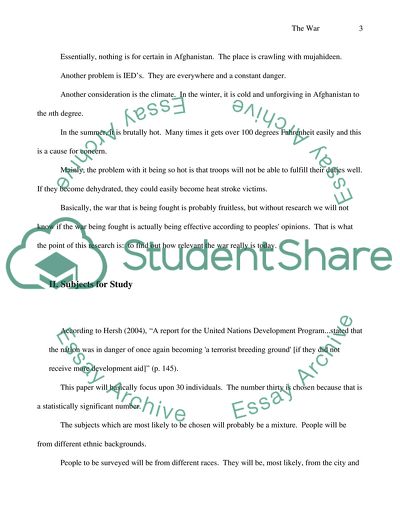Cite this document
(Is America Winning or Losing the War in Afghanistan Research Paper, n.d.)
Is America Winning or Losing the War in Afghanistan Research Paper. Retrieved from https://studentshare.org/military/1737691-is-america-winning-or-losing-the-war-what-is-the-measurement-of-success-have-the-benefits-outweighed-the-costs
Is America Winning or Losing the War in Afghanistan Research Paper. Retrieved from https://studentshare.org/military/1737691-is-america-winning-or-losing-the-war-what-is-the-measurement-of-success-have-the-benefits-outweighed-the-costs
(Is America Winning or Losing the War in Afghanistan Research Paper)
Is America Winning or Losing the War in Afghanistan Research Paper. https://studentshare.org/military/1737691-is-america-winning-or-losing-the-war-what-is-the-measurement-of-success-have-the-benefits-outweighed-the-costs.
Is America Winning or Losing the War in Afghanistan Research Paper. https://studentshare.org/military/1737691-is-america-winning-or-losing-the-war-what-is-the-measurement-of-success-have-the-benefits-outweighed-the-costs.
“Is America Winning or Losing the War in Afghanistan Research Paper”, n.d. https://studentshare.org/military/1737691-is-america-winning-or-losing-the-war-what-is-the-measurement-of-success-have-the-benefits-outweighed-the-costs.


